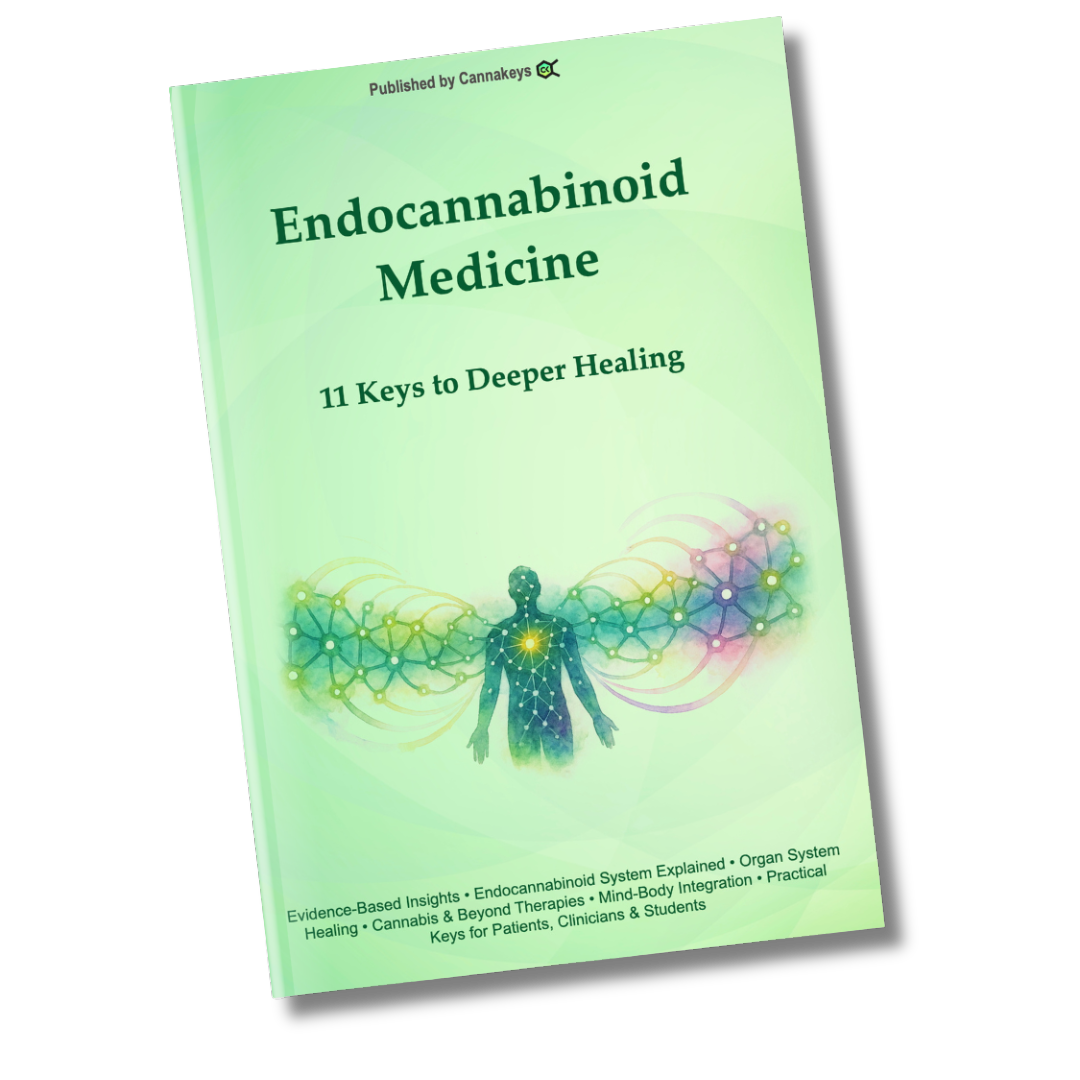Lennox-Gastaut Syndrome Research Dashboard
What am I missing as a non-subscriber?
To see a full dashboard with study details and filtering, go to our DEMO page.
As a subscriber, you will be able to access dashboard insights including chemotype overviews and dosing summaries for medical conditions and organ system and receptor breakdowns for cannabinoid and terpene searches. Study lists present important guidance including dosing and chemotype information with the ability to drill down to the published material. And all outputs are fully filterable, to help find just the information you need. Stay up-to-date with the science of cannabis and the endocannabinoid system with CannaKeys.
CannaKeys has 190 studies associated with Lennox-Gastaut Syndrome.
Here is a small sampling of Lennox-Gastaut Syndrome studies by title:
- First case report of effective and safe application of cannabidiol to treat concurrent ALG3-CDG and Lennox-Gastaut Syndrome
- Drug-drug interaction between anti-seizure medications in Dravet syndrome and Lennox-Gastaut syndrome
- Promising therapeutic strategies for Lennox-Gastaut syndrome: what's new?
- Refining management strategies for Lennox-Gastaut syndrome: Updated algorithms and practical approaches
- Clinically Meaningful Reduction in Drop Seizures in Patients with Lennox-Gastaut Syndrome Treated with Cannabidiol: Post Hoc Analysis of Phase 3 Clinical Trials
Ready to become a subscriber? Go to our PRICING page. Want to learn more about Endocannabinoid Medicine? Buy a book.

Endocannabinoid Medicine: 11 Keys to Deeper Healing
A clear, science-based guide to working with the endocannabinoid system for whole-body balance.
Buy Book
Cannabis for Chronic Pain Relief: A Dual Guide for Patients and Clinicians
A practical, evidence-based guide to using cannabis and cannabinoids for chronic pain.
Buy BookLennox-Gastaut Syndrome Research Dashboard
What am I missing as a non-subscriber?
To see a full dashboard with study details and filtering, go to our DEMO page.
As a subscriber, you will be able to access dashboard insights including chemotype overviews and dosing summaries for medical conditions and organ system and receptor breakdowns for cannabinoid and terpene searches. Study lists present important guidance including dosing and chemotype information with the ability to drill down to the published material. And all outputs are fully filterable, to help find just the information you need. Stay up-to-date with the science of cannabis and the endocannabinoid system with CannaKeys.
CannaKeys has 190 studies associated with Lennox-Gastaut Syndrome.
Here is a small sampling of Lennox-Gastaut Syndrome studies by title:
- First case report of effective and safe application of cannabidiol to treat concurrent ALG3-CDG and Lennox-Gastaut Syndrome
- Drug-drug interaction between anti-seizure medications in Dravet syndrome and Lennox-Gastaut syndrome
- Promising therapeutic strategies for Lennox-Gastaut syndrome: what's new?
- Refining management strategies for Lennox-Gastaut syndrome: Updated algorithms and practical approaches
- Clinically Meaningful Reduction in Drop Seizures in Patients with Lennox-Gastaut Syndrome Treated with Cannabidiol: Post Hoc Analysis of Phase 3 Clinical Trials
Ready to become a subscriber? Go to our PRICING page. Want to learn more about Endocannabinoid Medicine? Buy a book.

Endocannabinoid Medicine: 11 Keys to Deeper Healing
A clear, science-based guide to working with the endocannabinoid system for whole-body balance.
Buy Book
Cannabis for Chronic Pain Relief: A Dual Guide for Patients and Clinicians
A practical, evidence-based guide to using cannabis and cannabinoids for chronic pain.
Buy BookSelect New Condition
Overview - Lennox-Gastaut Syndrome
Description of Lennox-Gastaut Syndrome
Lennox-Gastaut syndrome (LGS) is a relatively rare but severe pediatric seizure disorder characterized by recurrent seizures which typically begin between the ages of 3-5. Estimates suggest it accounts for 1 to 4% of all cases of infant epilepsy.
LGS does not respond well to common pharmaceutical anticonvulsant regimens. It is common to try to use multiple pharmacological and non-pharmacological approaches, mostly off-label. These include:
- Ketogenic diet
- Vagal nerve stimulation
- Surgery (palliative care approach, or aggressive on occasion)
Most cases of LGS are secondary to pre-existing neurological damage from trauma during birth, central ischemia-related events, or infections of the central nervous system (CNS). Within orthodox medicine, the causes of LGS are poorly understood. It is posited that LGS may have a genetic component as well.
Over 50% of LGS patients also suffer from debilitating atonic or “drop” seizures, which presents the risk of further physical injury for patients. They also face a higher risk of sudden death referred to as Sudden Unexpected Death in Epilepsy (SUDEP).
Caregivers may also be challenged by their sleep disturbances, chronic fatigue, emotional disruptions, and pain from manually lifting or moving the patient.
Disease Classification
Condition: Epilepsy - Lennox-GastautDisease Family: Seizure Disorder
Organ System: Nervous System
ICD-10 Chapter: Diseases of the Nervous System
ICD-10 Code: G40.812
Lennox-Gastaut Syndrome Symptoms:
Seizure activity, status epilepticus (multiple seizures without regaining consciousness in between), oral trauma, incontinence, developmental difficulties (e.g., sitting up, crawling, walking), reduced mobility, disrupted sleep, difficulty swallowingAlso known as:
LGSDrug Interactions
THC Interaction with Pharmaceutical Drugs
- Tetrahydrocannabinol (THC) can enhance the effects of drugs that cause sedation and depress the central nervous system, such as benzodiazepines, barbiturates, and alcohol.
- THC is metabolized by an inhibitor of several enzymatic liver pathways referred to as cytochrome P450 (aka CYP450). There are more than 50 enzymes belonging to this enzyme family, several of which are responsible for the breakdown of common drugs such as antidepressants (e.g., amitriptyline, doxepin, fluvoxamine), antipsychotics (haloperidol, clozapine, Stelazine), beta-blockers (e.g., propranolol), bronchodilators (e.g., theophylline), or blood thinners (e.g., warfarin). Thus, patients taking these medication classes may find that THC increases the concentration and effects of these drugs and the impact duration.
- Clinical observation (not yet confirmed by clinical trials) suggests no likely interactions with other pharmaceuticals at a total daily dose of up to 20mg THC.
If you are interested in the interaction potential of specific pharmaceuticals with THC, consider visiting these free drug interaction checkers: Drugs.com or DrugBank Online.
CBD Interaction with Pharmaceutical Drugs
- Cannabidiol (CBD) may alter the action of metabolic enzymes (specific drug-transport mechanisms) and alter interactions with other drugs, some of which may produce therapeutic or adverse effects. For instance, CBD interacts with the enzyme cytochrome P450 3A4 and cytochrome P450 2C19, increasing the bioavailability of anti-epileptic drugs such as clobazam (a benzodiazepine). This makes it possible to achieve the same results at significantly lower dosages, reducing treatment costs and risks of adverse effects.
- Groups of drugs affected include anti-epileptics, psychiatric drugs, and drugs affecting metabolic enzymes.
- Clinical observations (not yet confirmed by clinical trials) suggest no likely interactions with other pharmaceuticals at a total daily dose of up to 100mg CBD.
If you are interested in the interaction potential of specific pharmaceuticals with CBD, consider visiting these free drug interaction checkers: Drugs.com or DrugBank Online.
THC/CBD Interaction with Pharmaceutical Drugs
In general, when using cannabinoid-based therapeutics that contain both THC and CBD consider the ratio between them and weigh the relevant information displayed in the individual THC and CBD Drug Interaction windows accordingly.
If you are interested in the interaction potential of specific pharmaceuticals with both primary cannabinoids and THC/CBD, consider visiting these free drug interaction checkers: Drugs.com or DrugBank Online.
Concerns about Cannabis and Cancer-related Immunotherapies:
Some recent clinical observational studies have suggested that the co-administration of cannabinoid-based therapeutics and immunotherapy or immune checkpoint inhibitors in the treatment of certain types of cancer has been associated with worse overall survival rates (T. Taha et al., 2019; A. Biedny et al., 2020; G. Bar-Sela et al., 2020).
However, other studies have suggested that the co-commitment use of immune checkpoint inhibitors and cannabis-induced no such deleterious effects. More specifically, one trial was conducted on animals resulting in data suggesting that cannabis did not negatively affect the properties of immune checkpoint inhibitors (B. Waissengrin et al., 2023). The same authors compared the previous study results with findings from a cohort of 201 patients with metastatic non-small cell lung cancer who received treatment with monotherapy pembrolizumab as a first-line treatment and adjunct cannabis to treat mainly pain and loss of appetite. Their time to tumor progression was 6.1 versus 5.6 months, and overall survival differed between 54.9 versus 23.6 months in cannabis-naïve patients and cannabis-using patients, respectively. However, while numerically different, the authors write that these differences were not statistically significant, leading them to suggest that “These data provide reassurance regarding the absence of a deleterious effect of cannabis in this clinical setting.”
Dosing Considerations
THC Dosage Considerations
- THC micro dose: 0.1 mg to 0.4 mg
- THC low dose: 0.5 mg to 5 mg
- THC medium dose: 6 mg to 20 mg
- THC high dose: 21 mg to 50+ mg
CBD Dosage Considerations
- CBD low dose: 0.4 mg to 19 mg
- CBD medium dose: 20 mg to 99 mg
- CBD high dose: 100 mg to 800+ mg (upper limits tested ~1,500mg)
Disclaimer
Information on this site is provided for informational purposes only and is not meant to substitute for the advice provided by your own licensed physician or other medical professional. You
should not use the information contained herein for diagnosing or treating a health problem or disease. If using a product, you should read carefully all product packaging. If you have or suspect that you have a
medical problem, promptly contact your health care provider.
Information on this site is based on scientific studies (human, animal, or in vitro), clinical experience, or traditional usage as cited in each article. The results reported may not necessarily occur in all individuals. For many of the conditions discussed, treatment with prescription or over-the-counter medication is also available. Consult your physician, nutritionally oriented health care practitioner, and/or pharmacist for any health problem and before using any supplements or before making any changes in prescribed medications.

